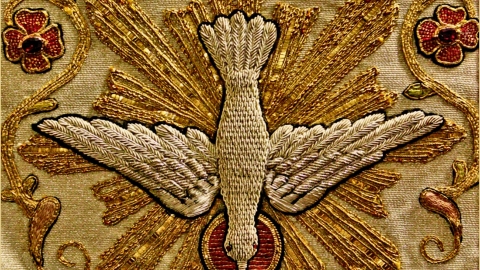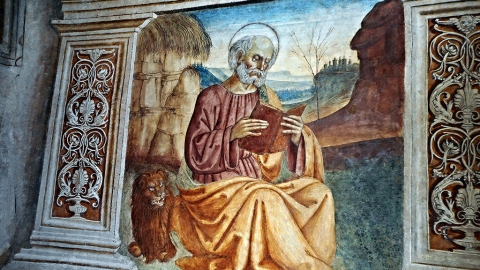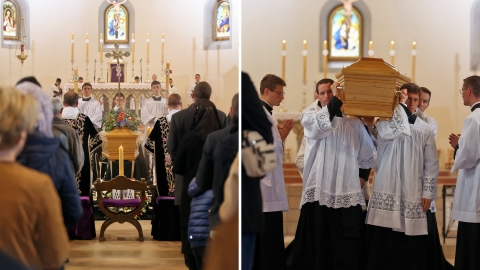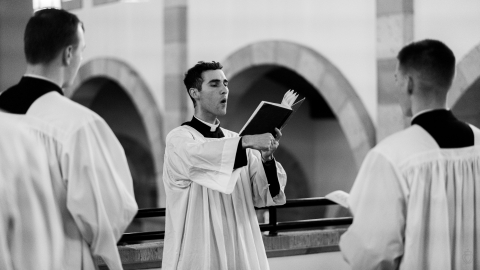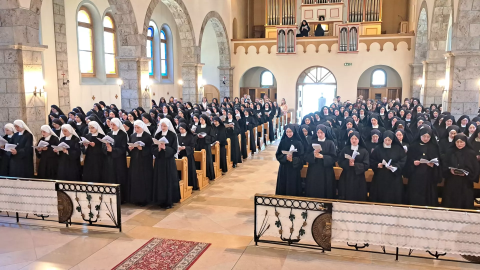Liturgy: Third Sunday after Easter
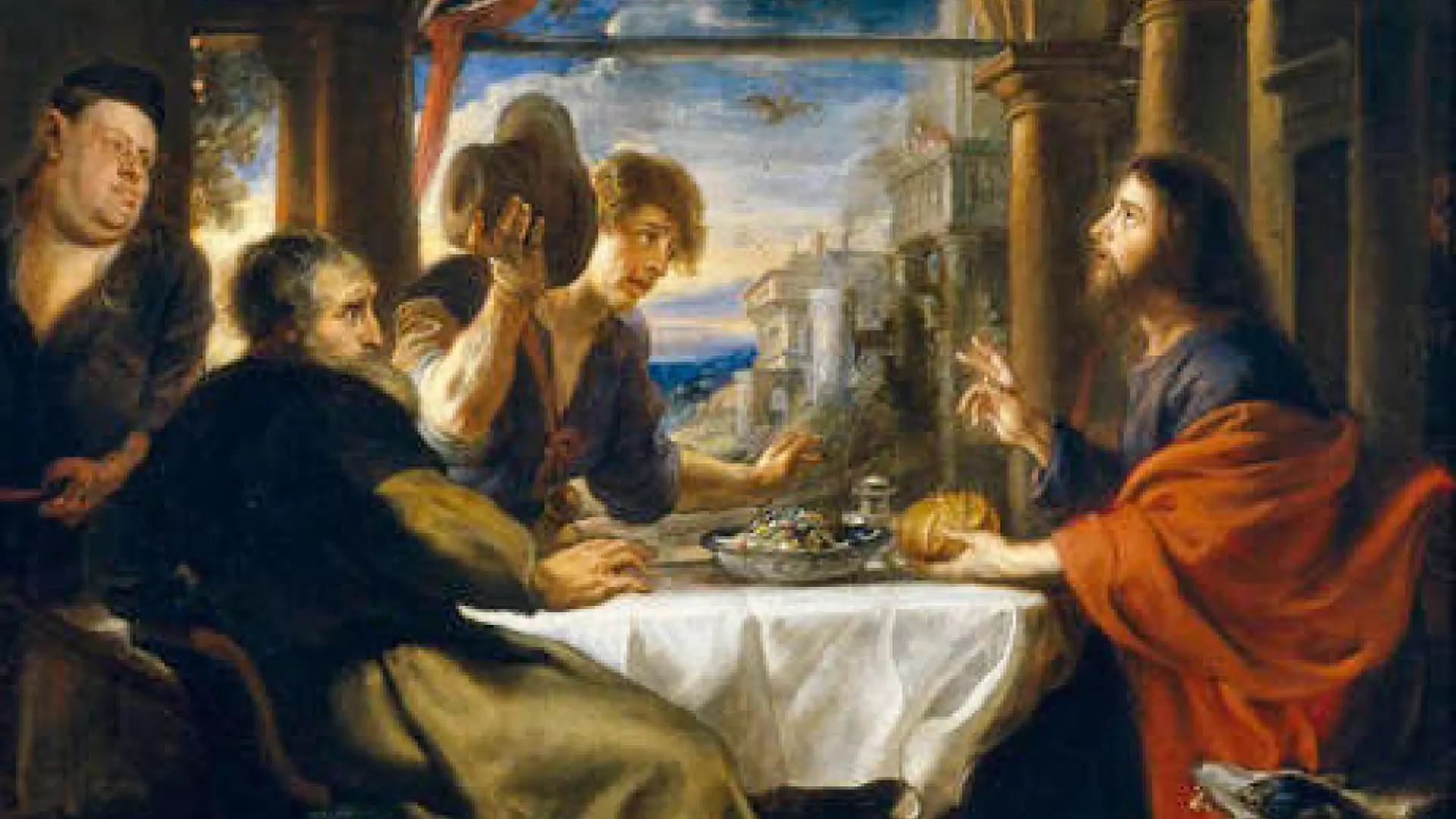
Peter Paul Rubens: Supper at Emmaus
So also you now indeed have sorrow: but I will see you again and your heart shall rejoice. And your joy no man shall take from you.
The Church rejoices because Christ is risen and has delivered us (Alleluia); so she sends up cries of joy (Introit), and sings the praises of God (Offertory).
"A little while and now you shall not see Me", said our Lord in the Cenacle... and you shall lament and weep" and "again a little while and you shall see Me... and your heart shall rejoice" (Gospel). When the apostles beheld our Lord again they experienced this joy which still overflows into the Easter liturgy. This is the same joy which will be felt by the Church when, having with sorrow begotten souls to God, she sees her Lord once more, triumphant in Heaven, at the end of time; but a short season compared with eternity. He will change our sorrow into joy which no man shall take from us (Gospel).
This holy joy begins here below, for our Lord has not left us orphans, but comes to us by the Holy Ghost, whose grace fills us with the hope of future bliss. As strangers and pilgrims journeying to heaven in the train of our risen Lord, we should not cling to the vain pleasures of the world but rather as St. Peter tells us, we should follow the precepts of the Gospel (Epistle), that professing ourselves Christians, we may "reject those things which are contrary to that name, and follow such things as are agreeable to the same" (Collect).
So may we come to the heavenly kingdom whose joy and glory are described for us by St. John.
One of the seven angels said to me: Come and I will show thee the bride, the wife of the Lamb. And I saw the new Jerusalem coming down out of Heaven prepared as a bride adorned for her husband. Alleluia. How beautiful is she become, this bride from Lebanon."
Source: Dom Gaspar Lefebvre, OSB, 1945, adapted and abridged.

